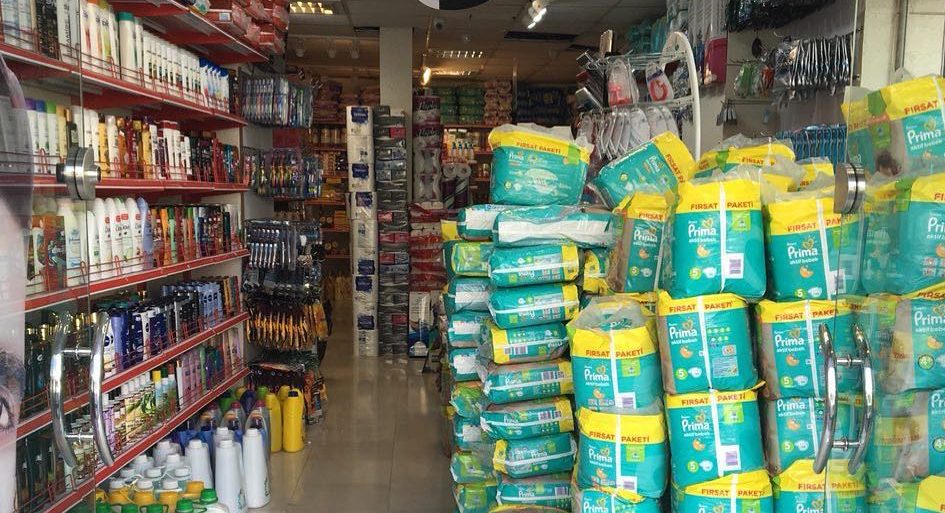CHRI – The mothers of two children with spinal disabilities in Tehran Province told the Center for Human Rights in Iran (CHRI) that they are unable to obtain diapers, urinary catheters and other necessary sanitary products due to scarcity and rising costs.

Iran’s State Welfare Organization (SWO), the main agency tasked with providing services to people with disabilities, has not taken any steps to provide financial support or supplies for vulnerable families amid the severe drop in Iran’s currency, the rial, citing lacking resources.
“A few days ago, when we couldn’t find any diapers, I went to the SWO office and their response was that they don’t have any diapers or money or anything,” said the mother of eight-year-old Nazanin, who lives in suburbs near Tehran city.
“They said we should be patient, but for how long? I searched the city for two days and all I could buy was one pack of diapers for 70,000 tomans ($16.6 USD)—twice the normal price,” she added. “I don’t know what I’m going to do when this precious pack is used up.”
The names of the people who provided testimonies for this report have been kept anonymous due to the pressure security and judicial officials impose on Iranian citizens to avoid speaking publicly about sensitive social and political issues.
The rial broke several record lows against the US dollar in 2018 in reaction to the US withdrawing in May from the nuclear deal that was signed by Iran and six world powers in 2015. The crisis has been exasperated by looming US sanctions targeting Iran’s oil and gas industries and its access to financial markets.
Those sanctions won’t be imposed until November but the effects of the rial’s drop can already be seen on the streets as people scramble to obtain US dollars and stores experience diaper shortages.
Iran imports approximately 70 percent of the material required to manufacture disposable diapers and many companies have been unable to maintain supplies due to lacking funds or currency.
On September 5, 2018, Afrouz Saffari-Fard, the director of the SWO’s rehabilitation centers, acknowledged the shortage of products and devices for individuals with disabilities and claimed that some domestic producers of diapers for children and adults had agreed to lower their prices.
He also pledged that by October 2018, his office would set aside 70 percent of its budget to procure products for people with disabilities.
Asked about the shortage of hearing aids, as well as wheelchairs and their spare parts, especially tires imported from abroad, Saffari-Fard said he had sent a letter to the Ministry of Health to request assistance for those in need.
That day, the deputy director of the SWO’s rehabilitation affairs department, Hossein Nahvinejad, stated that the health sector had grappled with economic difficulties in the past and that this crisis is not only due to soaring prices but also a shortage of equipment and devices for people with disabilities.
“The SWO’s credit line is 2.4 trillion tomans ($570 million USD), of which about one trillion tomans ($237 million USD) is allocated for rehabilitation and 800 billion tomans ($190 million USD) for assistance to centers for people with disabilities,” Nahvinejad said.
Despite receiving 14.1 percent more in state funds in 2018, monthly financial assistance provided by the SWO to people disabilities in Iran is only 161,000 tomans ($38 USD), which does not cover basic monthly costs such as housing and food, let alone assistance and equipment.
“My husband’s monthly salary is 1.5 million tomans ($356 USD). We have three children. Tell me, how can we pay rent and expenses for the kids and everything else with that? We can’t. We don’t know what to do,” Nazanin’s mother told CHRI.
“My child needs urinary catheters and bags as well as other sanitary products such as cloths, wash gels and creams, betadine, glues and sterile gauze,” she added. “They have all gone up in price. How am I able to get all of them with that money from the SWO?”
Nazanin’s mother also told CHRI that they have been forced to conserve urinary catheters.
“I haven’t gone out to buy some more and honestly, I’m afraid to see how expensive they’ve become. My child needs four catheters daily but in recent months, we only used one in the morning and one at night because they had gone up to 48,000 tomans ($11.4 USD) per pack,” she said.
Each pack has 60 catheters.
On the impact of rising diaper prices, the mother of 12-year-old Fatemeh, based in suburbs of Tehran Province, told CHRI:
“Diapers have doubled in price. I cannot afford 70,000 tomans ($16.6 USD) per pack. I went to the SWO office and they said they don’t have any diapers or catheters. They don’t have anything. I even wrote a letter to the supreme leader’s office but I haven’t received a response yet.”
She continued: “Usually, the SWO supplies us with things like medicine for bed sores, catheters, sterile gauzes and cleaning products, but they stopped two months ago. They say they don’t have them anymore. The last time I went there, I asked them to at least give me some diapers but they said they didn’t have any. Where can we find them?
“I don’t know what we’ll do if we can’t find diapers or catheters at a suitable price,” she said. “I just know we can’t go on like this.”
 Shabtabnews In this dark night, I have lost my way – Arise from a corner, oh you the star of guidance.
Shabtabnews In this dark night, I have lost my way – Arise from a corner, oh you the star of guidance.


